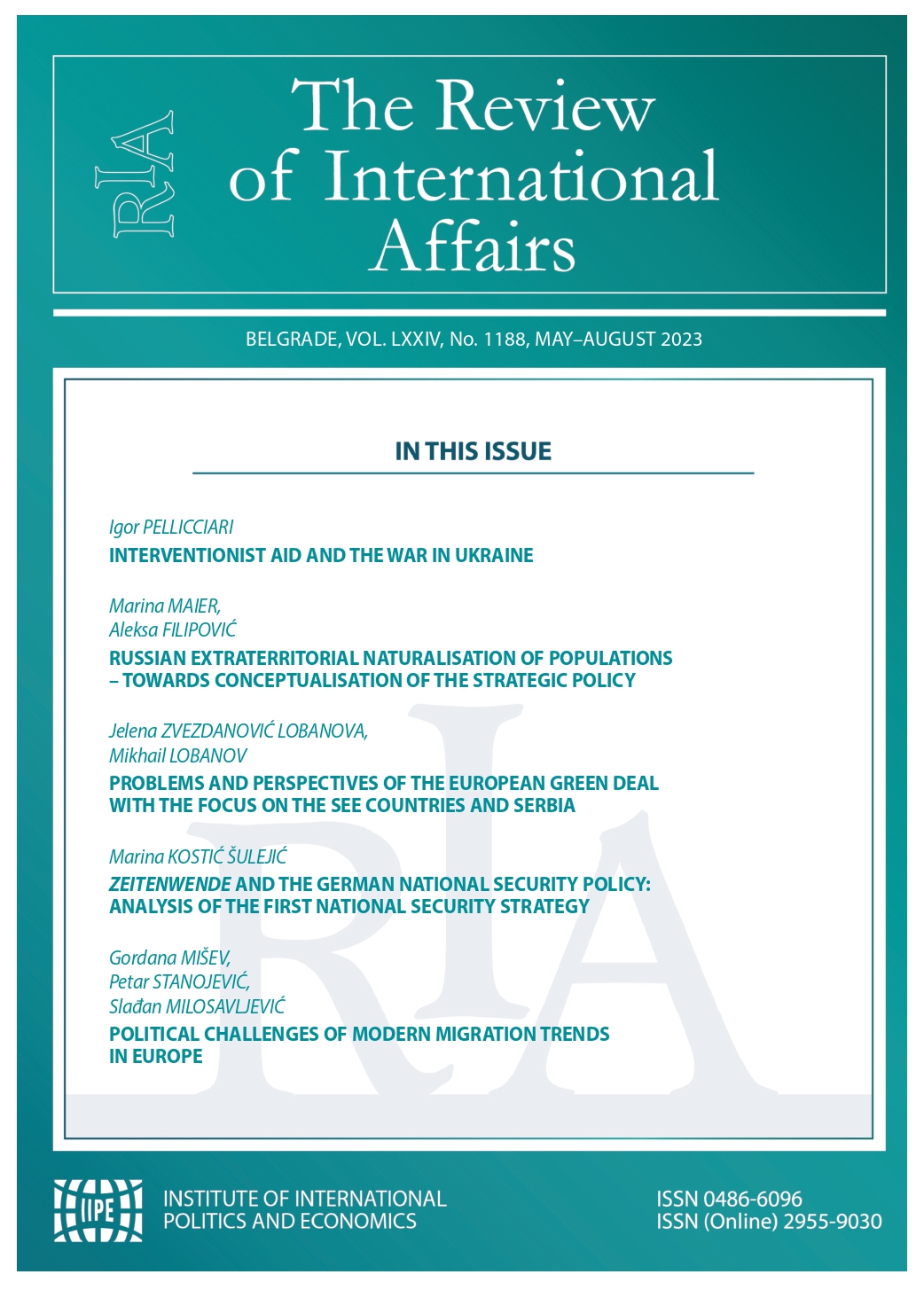Political Challenges of Modern Migration Trends in Europe
Political Challenges of Modern Migration Trends in Europe
Author(s): Gordana Ž. Mišev, Petar D. Stanojević, Slađan MilosavljevićSubject(s): Politics / Political Sciences, Social Sciences
Published by: Институт за међународну политику и привреду
Keywords: population; migration; religion; Europe; politics; changes.
Summary/Abstract: The rapid growth of the population in the last 70 years has been constantly accompanied by increasing migration flows. From 1950 to 2020, the population of Europe grew from about 547 million to 741 million, while the Muslim share in this population quadrupled from 10.7 million to 42.7 million people. Such an exponential growth of the Muslim population could pose political challenges for Europe, especially for the countries of Western Europe, which are often the final destination for migrants from various parts of the world, primarily from North Africa and the Middle East. This paper aims to analyse trends in migration and the rate of natural increase in order to roughly estimate whether Europe’s demographic outlook will undergo a major change in the next 50 years. It also attempts to determine what kind of political challenges might arise as a result. Using the method of quantitative content analysis, it is estimated that the Christian population will decrease by about 25 million due to the ageing of the population and declining birth rates, while the Muslim population will increase by about 200 million due to migration and the rate of natural increase. The conclusion is that there are indications that migrations will change not only the demographic outlook, but also the European political and security identity in the worst case. However, in the case of government-controlled migration-induced changes, they will lead mostly to minor changes in the emigration policy.
Journal: The Review of International Affairs
- Issue Year: LXXIV/2023
- Issue No: 1188
- Page Range: 107-134
- Page Count: 28
- Language: English

